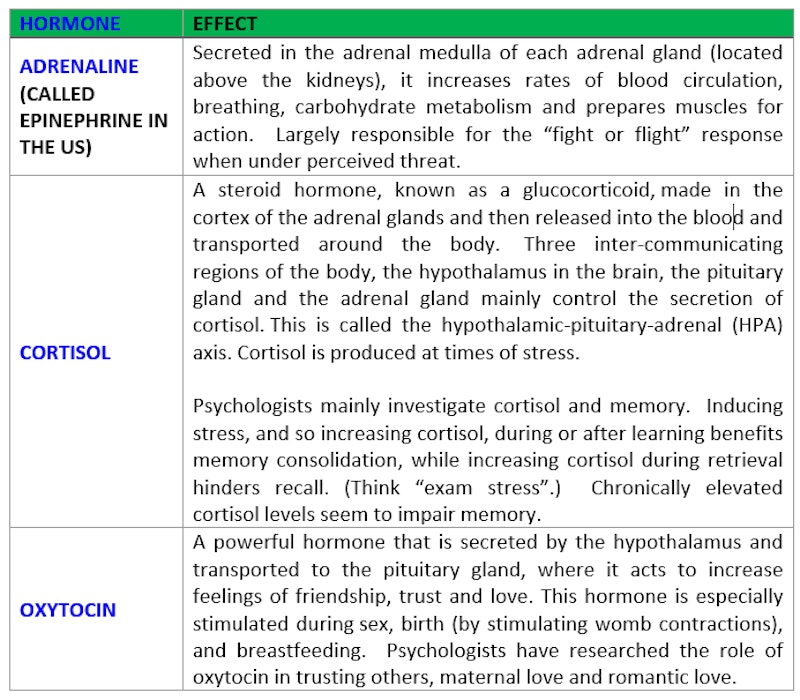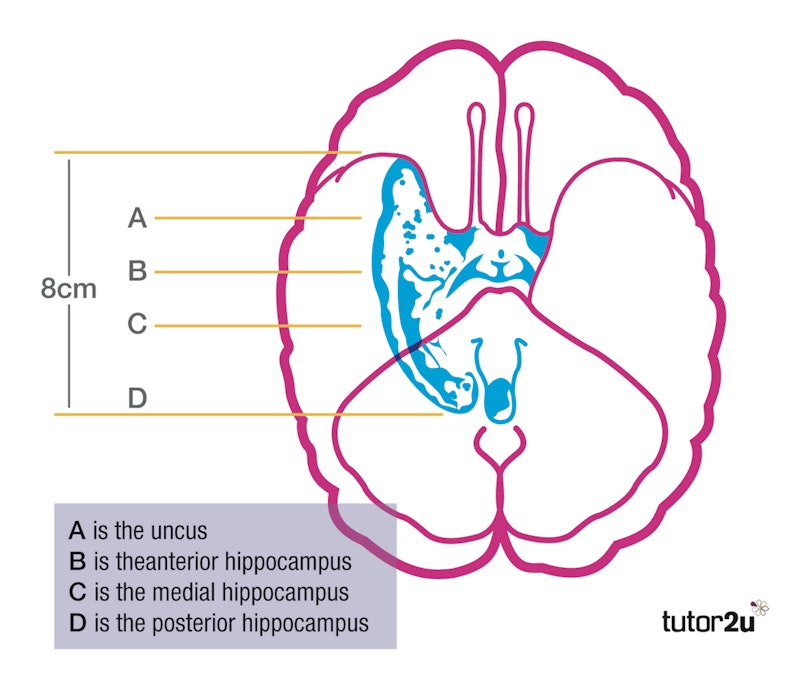Study Notes
IB Psychology (BLOA): Cognitions, Emotions & Behaviours are Products of the Anatomy and Physiology of our Nervous and Endocrine System
- Level:
- IB
- Board:
- IB
Last updated 22 Mar 2021
The biological approach to psychological research relies on three key assumptions:
- Patterns of behaviour can be inherited, which means that we don’t only inherit our hair and eye colour from our parents and grandparents, but also our attitudes and behaviours.
- Animal research may inform our understanding of human behaviour, because many animals have brains and nervous systems that are similar to humans
- Cognitions, emotions and behaviours are products of the anatomy and physiology of our nervous and endocrine systems. In other words, the structure and processes of our brain and nervous system govern how we feel and think.
These key assumptions are the principles underpinning all psychological research carried out within the biological approach.
Key Question: Outline the key assumptions of the biological approach.
The biological approach does just what you would think from the name: it assumes that our behaviour is the product of our physiology, that it can be researched by investigating our physiology (or even animal physiology) and that behaviour patterns are also inherited from our ancestors, both recent and distant.
3. Cognitions, Emotions & Behaviours are Products of the Anatomy and Physiology of our Nervous and Endocrine System
Psychologists investigating human behaviour from the biological approach use brain-imaging techniques to investigate the correlation between brain processes and structures and human behaviour. They focus on three areas:
- neurotransmitter activity
- hormone activity
- brain structure (including brain damage)
A) Neurotransmitter activity
Neurotransmitters are brain chemicals that communicate information via electrical impulses throughout our brain and body. They relay signals between neurons (nerve cells), transmitting signals across a chemical synapse from one neuron to another "target" neuron.
The most common neurotransmitters studied in psychology are:

B) Hormone activity
While neurotransmitters are produced by neurons when triggered by an electrical impulse, hormones are chemical messengers that are secreted (given out) by glands in the endocrine system. They enter directly into the bloodstream, while neurotransmitters are secreted at nerve synapses.Hormones therefore act more slowly on the body and brain than do neurotransmitters.
The most common hormones studied in psychology are:

C) Brain structure
The brain processes outlined above, especially those of neurotransmission and hormone release within the brain, rely on an intact brain structure. Psychologists have researched the correlation between brain structure, brain activity and human behaviour, to draw conclusions regarding localisation of brain function (certain structures having certain functions) and brain plasticity (the brain adapting to environmental and cognitive input). While it is true that brain plasticity allows one brain structure to sometimes take over the function of another when there is brain damage, any damage to the structure of the brain usually has an effect on human behaviour.
A good example of this is the study outlined below. H.M. underwent experimental surgery in 1953 to try and cure his severe epilepsy. The surgery resulted in complete anterograde amnesia (memory of events after the surgery) and partial retrograde amnesia (memory of events before the surgery). Cognitive psychologist Brenda Milner tested H.M. over many years. In the 1990s, a biological researcher, Suzanne Corkin, decided to scan H.M.’s brain to see the extent of the damage.
Key Study 3: HM (Corkin, 1997)
Aim: To investigate the extent of the hippocampal and medial temporal lobe damage to H.M.’s brain and to determine whether this could be sufficient to have resulted in the drastic memory loss suffered by H.M.
Method: One MRI scan was conducted on H.M. in 1992 and one in 1993. Before the 1992 scan, H.M. completed an IQ test and a memory test. The IQ test showed that he had normal intelligence, but the memory test showed his memory quotient (MQ) was 37 points lower than his IQ and showed he had severe amnesia.

Results: Both scans showed that the lesioning (also called ablation or cutting) of H.M.’s brain was 3 cm less than Scoville, the original surgeon, had estimated. It did not extend as far into the posterior hippocampal region as he had believed. Approximately 50% of the posterior hippocampus on each side remained, but this had shrunk considerably on the right side. Corkin et al. believe this could be due to both the removal of the rest of the hippocampus, and also to the drugs and continuing (though much reduced) epileptic seizures.
Conclusions: The small amount of normal hippocampus remaining in the left temporal lobe was not sufficient to support normal memory. Therefore, this study demonstrates the importance of the hippocampus and the temporal medial lobe area for memory.
Evaluation
While methodologically, this study was sound, ethically there are some questions. It was Brenda Milner, the psychologist associated long-term with H.M., who gave the permission for Corkin to scan H.M.’s brain. It is not clear if she was the appointed responsible adult legally able to do this. H.M., even if he gave permission himself, would not have remembered it, so there are issues with informed consent and right to withdraw, although anonymity was maintained until after his death.
Critical Thinking
Could some of the brain damage be the result of something other than the surgery? - It is interesting to speculate why the right hippocampus was more damaged than the left. The original surgery had reduced, but not cured, the epilepsy and HM was still taking drugs to control his seizures. Maybe these were responsible for some of the brain damage and memory loss?
For More Study Notes…
To keep up-to-date with the tutor2u Psychology team, follow us on Twitter @tutor2uPsych, Facebook (AQA) / OCR / Edexcel / Student or subscribe to the Psychology Daily Digest and get new content delivered to your inbox!
You might also like
Treating OCD
Study Notes
Ackermann et al. (2013)
Study Notes
Morhenn et al. (2008)
Study Notes
Using Play-Doh In Biopsychology Lessons
14th January 2017

Psychology in the News | Does Exercise Benefit the Brain?
29th January 2024